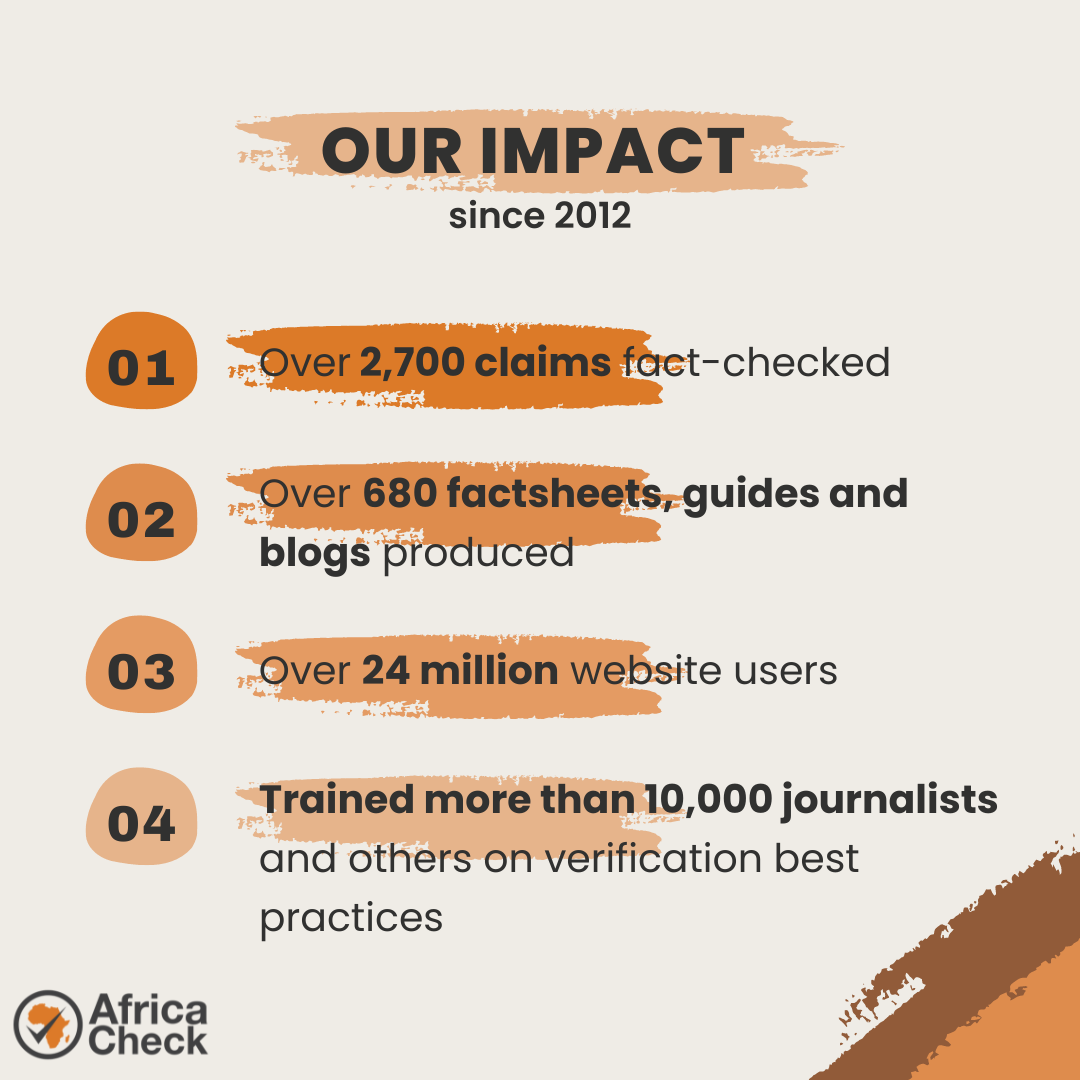Improving public debate and strengthening democracy depends on our work having a sustainable impact. We rigorously track and measure progress towards our organisational objectives.
Collectively, our team of nearly 40 has published almost 1,700 fact-check reports, fact-checked over 2,700 claims, published 683 factsheets, guides and blogs on contested issues and trained more than 10,000 journalists and others on verification best practices.
More than 24 million people have visited our website, with an additional over 100 million indirect content views through third-party media republications. More than 18 million social media posts were labeled using our fact-checks in 2023.
Claims we’ve fact-checked
We fact-check claims on a wide range of topics, but prioritise serious policy-related claims about health, the economy, education and electoral politics, as these directly affect people’s lives. In 2023, topics on the economy, government and development were the focus of 72% of our English fact-checks. Claims on the economy accounted for 50% of our fact-checks in French.
False, unproven or misleading claims may be made by public figures, political parties, organisations, journalists and social media users who publicly state the claim as fact.
Political entities accounted for 65% of the claims we fact-checked in English and 54% of the claims we fact-checked in French.
Based on our rating system, 28% of the claims we rated in English and 8% of claims rated in French were correct

Our five organisational goals
- Identify and reduce the circulation of false and misleading claims on key topics
- Ensure accurate information is made more available to the public and policy-makers
- Ensure the public and policy-makers retain a more accurate understanding of key topics
- Foster fact-checking skills among the public, particularly young people
- Help develop a community of nonpartisan fact-checkers across the continent
Our measurement approaches
- Routine tracking. To measure whether we are improving from previous years, we routinely and quantitatively track agreed indicators of progress in our five organisational goals.
- Anecdotal evidence. To support our quantitative metrics, we collect anecdotal evidence. This is done informally, relying on testimony, public references and statements mentioned in passing. Although more difficult to obtain and track, this evidence provides a rich archive of stories that help us build an overall argument for fact-checking.
- Surveys and support for research and case-studies. We conduct formal and informal surveys and case studies to gain more insight into various aspects of fact-checking. On occasion, we support external research studies and evaluations by independent academics to help us gain an objective understanding of the impact of our work.
